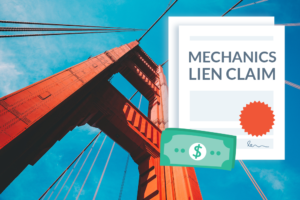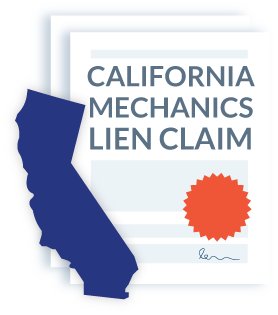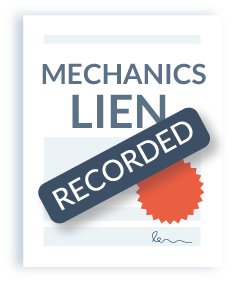

Extending the life of a California mechanics lien
First things first: Can a California mechanics lien even be extended?
Yes, but it can be complicated. Particularly because the term “lien extension” is nowhere to be found in the language of California’s lien law. Nor is there a process for claimants to file a “lien extension” document to get a mechanics lien’s life extended.
California Notice of Credit
There is a provision in California to extend the validity period for a mechanics lien, but it’s rarely used and relatively uncommon. Simply because all lien extensions must be signed by the property owner and indicate the property owner’s consent to the extension. Yes, the property owner must agree to extend the validity of the mechanics lien against their own property. This is known as a “Notice of Credit” found under California Civil Code Section 8460:
(a) The claimant shall commence an action to enforce a lien within 90 days after recordation of the claim of lien. If the claimant does not commence an action to enforce the lien within that time, the claim of lien expires and is unenforceable. (b) Subdivision (a) does not apply if the claimant and owner agree to extend credit, and notice of the fact and terms of the extension of credit is recorded (1) within 90 days after recordation of the claim of lien or (2) more than 90 days after recordation of the claim of lien but before a purchaser or encumbrancer for value and in good faith acquires rights in the property. In that event the claimant shall commence an action to enforce the lien within 90 days after the expiration of the credit, but in no case later than one year after completion of the work of improvement.
To sum this up, if the claimant and the property owner agree to terms of credit on the debt, California law allows the parties to agree to suspend the lien foreclosure period. This can be suspended (extended) for up to one year from the completion of the construction project, no longer.
Why would a property owner agree to do this?
The only reason a property owner would agree to such a lien extension is if they agreed to the amount due, promised to pay the claim, but wanted a “credit agreement” with the claimant to pay the claim over time. In this scenario, the claimant and the property owner could agree to an extended payment plan and allow the lien to get extended to avoid the costs of a foreclosure action. If the lien isn’t extended by agreement, the foreclosure would otherwise be necessary.
Here’s an example:
A plumber files a mechanics lien for $15,000. The owner agrees to pay the plumber $3,000 per month for 5 months. Since the foreclosure period will expire before the expiration of the payment term, the parties can agree to suspend the foreclosure period with a “notice of credit,” to keep the lien claim alive (without foreclosure) until the 5 month payment period expires.
The timeframe will be tight
When this magical scenario occurs, that’s not the end of the complications. The process of extending a California mechanics lien as described above isn’t simple or speedy. Especially considering that most of these “credit deals” are arranged last minute. This leaves the parties scrambling to get the Notice of Credit filed in the county recorder’s office on time.
You’ll want to get started on this as early as possible, for two main reasons.
First, the “Notice of Credit” document must be signed by both the property owner and the lien claimant. Obviously, there are some logistical challenges to getting the document filed. Even more so if these two parties reside in different counties or states. Plan accordingly.
Second, you should expect the county clerk or recorder to be perplexed when you show up to record this document. As stated earlier, Notices of Credit are rare. The clerk may not be familiar with the document’s purpose and requirements. Seemingly every time you try to record the document, the clerks will reject it at first for whatever reason. So, be prepared to have to fight a little bit when trying to record your notice of credit in California.


